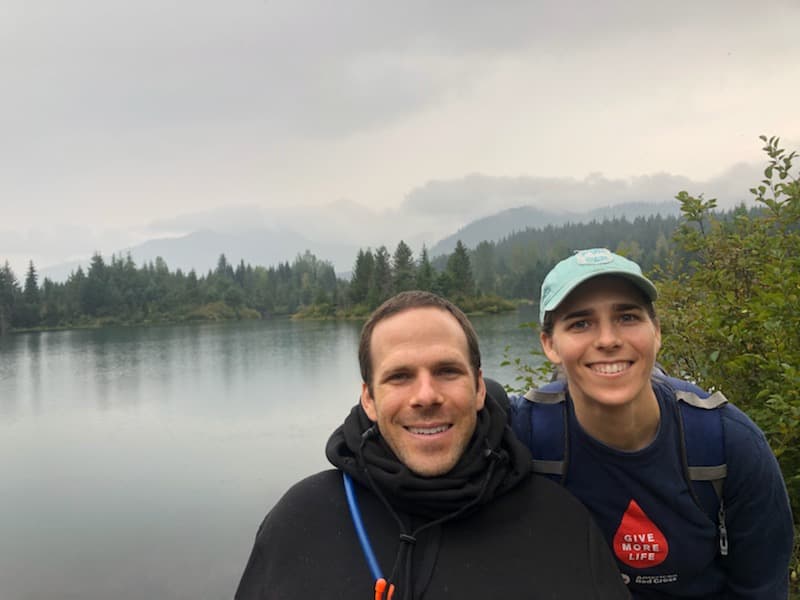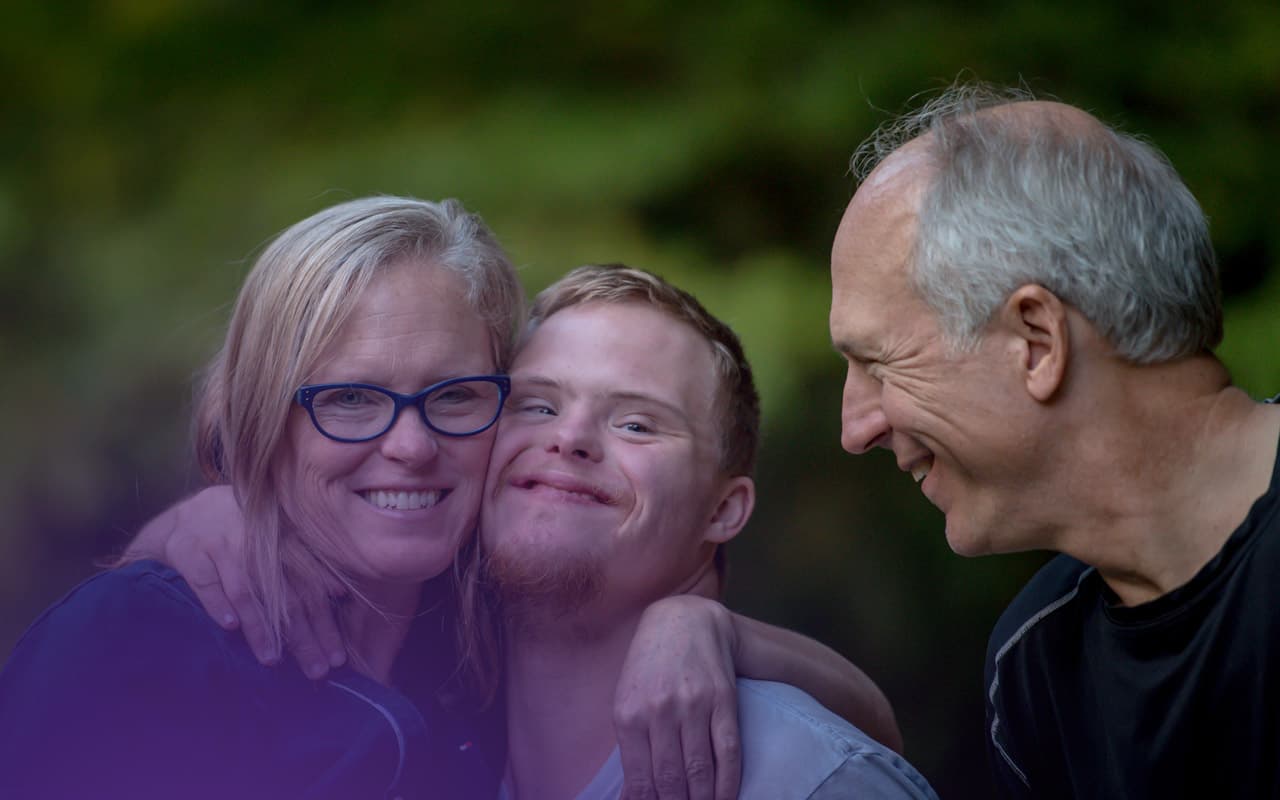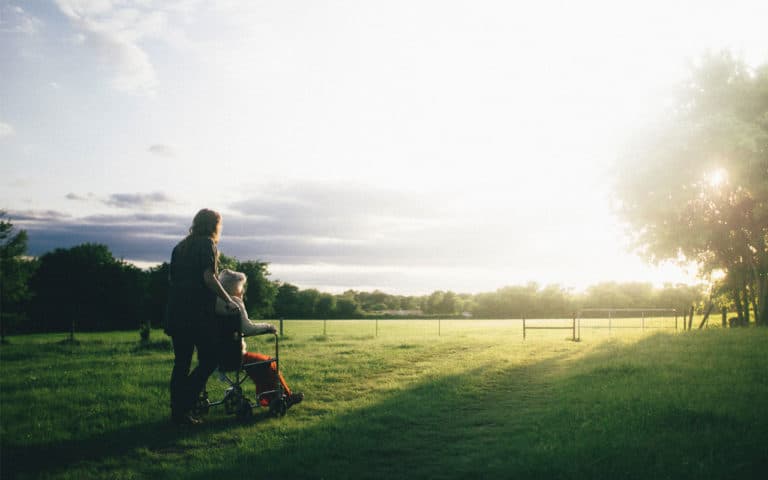Caregiver: Audrey G.
She’s caring for: Her twin brother, Cory
Best tip for other caregivers: Do your best not to lose sight of yourself, who you are away from your caregiver role, and what your dreams/desires are.
Family Tradition Turned Emergency
The Goral family has always loved the outdoors. They frequently enjoyed family trips across California, where they hiked, camped, and swam in the spoils of Cali’s unique nature. In June 2019, they took a camping trip to the Colorado River in SoCal, a family tradition. With the heat pounding down on them, the entire family, including Audrey and her twin brother Cory, spent the afternoon jumping into the river to cool off. In an unfortunate twist of fate, Cory dove head-first into the river and hit his head. Unable to move, he held his breath, hoping someone would notice and pull him out.
A cousin nearby yelled, alerting the family that something was wrong. “I thought she was yelling about a wakeboarder who had fallen, but then I saw family members rush in to pull someone out,” recalls Audrey. As Cory was brought to shore, Audrey noticed his head was bleeding and his body was limp. Once she overcame the initial panic and concern that overtook her, she immediately sprung into action using her Wilderness First Aid training, stabilizing his head to prevent further injury until emergency crews arrived. “During my wildlife training course, I was chosen to stabilize the patient’s head and lead lifting them into the stretcher, and now here I was doing that for my brother,” she says.
Adapting to a New Normal
Cory was airlifted to the hospital, where they found out he had sustained a high-level spinal cord injury. He fractured every cervical vertebra and, as a result, became a quadriplegic. He spent several weeks in intensive care and three months at a rehabilitation center. However, Audrey never left his side, and once the family was informed Cory would need around-the-clock care, she volunteered to become his caregiver. “I knew I was in the best position to take care of him,” she recalls.
Before her brother was discharged from the rehab center, Audrey renovated her home to make it more accessible for Cory as he learned to adapt and navigate his new way of life. She added ramps, swapped the tub for a shower, and outfitted the house with a motorized door. After learning everything she could from the staff at the rehab center, which even simulated an at-home care environment in nearby housing to “soft-launch” her new caregiving duties, she dove head first into caring for her brother.
Prior to the accident, Audrey had signed up for a triathlon that was set to take place in October. During one of the most difficult times in her life, she considered pulling out of the triathlon but discovered that training for the race was almost therapeutic.
“Training helped me designate time for myself,” she says about her sometimes two-a-day practices. “It was the one moment in the day when I took off my caregiving hat and focused on what I enjoyed.”
Four months after one of the scariest moments of her life, Audrey completed the triathlon with her brother cheering her on.
Audrey the Advocate
“I can definitely say I’ve become more assertive since becoming my brother’s caregiver,” she admits. Audrey’s selfless commitment to Cory goes way beyond just caring for him. She has become his fierce advocate in all aspects of life. From medical appointments to his accessibility needs, she’s constantly asking the right questions and digging deeper to help Cory live a fulfilling and adventurous life regardless of his mobility.
In fact, she even found innovative ways to get Cory back to doing what he loves most: enjoying the outdoors. Since Cory’s accident, they’ve taken many trips ranging from Sierra National Forest to the beaches of Santa Barbara and even paddle boarding in SoCal.
Her Advice to Other Caregivers
“You are doing your best today, and you are enough,” she shares. The hardest part she faced when she became her brother’s primary caregiver while working full-time was the emotional aspect of it. It’s a 24/7 role that doesn’t come with an instruction manual and creates a lot of doubt and second-guessing.
Her biggest piece of advice to caregivers is not to lose themselves in their role. “You deserve and are allowed to put yourself first, and it's okay to say no,” she says. “It's okay to take time for yourself each day and do what feeds your soul. Give yourself grace, go after what makes you happy, and remember that you are so much more than just a caregiver.”
Share Your Story
We believe in highlighting caregivers' stories and all of the incredible work caregivers do on a daily basis. If you want to share, please reach out to our Care Team at (800) 696-CARE or email support@carewell.com.


